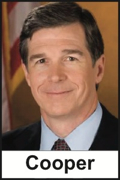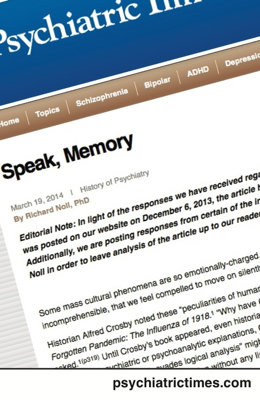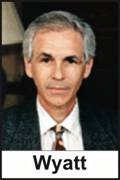Rascals case in brief
In the beginning, in 1989, more than 90 children at the Little Rascals Day Care Center in Edenton, North Carolina, accused a total of 20 adults with 429 instances of sexual abuse over a three-year period. It may have all begun with one parent’s complaint about punishment given her child.
Among the alleged perpetrators: the sheriff and mayor. But prosecutors would charge only Robin Byrum, Darlene Harris, Elizabeth “Betsy” Kelly, Robert “Bob” Kelly, Willard Scott Privott, Shelley Stone and Dawn Wilson – the Edenton 7.
Along with sodomy and beatings, allegations included a baby killed with a handgun, a child being hung upside down from a tree and being set on fire and countless other fantastic incidents involving spaceships, hot air balloons, pirate ships and trained sharks.
By the time prosecutors dropped the last charges in 1997, Little Rascals had become North Carolina’s longest and most costly criminal trial. Prosecutors kept defendants jailed in hopes at least one would turn against their supposed co-conspirators. Remarkably, none did. Another shameful record: Five defendants had to wait longer to face their accusers in court than anyone else in North Carolina history.
Between 1991 and 1997, Ofra Bikel produced three extraordinary episodes on the Little Rascals case for the PBS series “Frontline.” Although “Innocence Lost” did not deter prosecutors, it exposed their tactics and fostered nationwide skepticism and dismay.
With each passing year, the absurdity of the Little Rascals charges has become more obvious. But no admission of error has ever come from prosecutors, police, interviewers or parents. This site is devoted to the issues raised by this case.
On Facebook
Click for earlier Facebook posts archived on this site
Click to go to
Today’s random selection from the Little Rascals Day Care archives….
Click for earlier Facebook posts archived on this site
Click to go to
Today’s random selection from the Little Rascals Day Care archives….
View from Edenton: Oh, the damage done….
March 1, 2021
I was surprised recently to notice a Facebook message from an elementary school teacher in Greenville, N.C.
Buddy Hyatt had grown up in Edenton and wanted to talk about the Little Rascals Day Care case. “It ripped apart many families and almost destroyed the town,” he wrote. “In 1989, when the accusations started, I was in first grade. But earlier I had attended Little Rascals. My parents had me and my younger brother checked over by an unbiased child psychiatrist in Greenville. After several sessions he reported that we had no indications of physical or sexual abuse.”

Buddy Hyatt
Buddy had multiple other windows on the case. ‘”My grandfather, Pete Manning, was editor and publisher of the Chowan Herald, and my dad was associate pastor and minister of music at Edenton Baptist.
“The Twiddys, the Kellys and Nancy Smith were all members of our church, as was [initial accuser] Jane Mabry Williams. This split the church right down the middle. Because the pastor and staff wouldn’t take sides, quite a few people got mad as fire. A good handful left. Some (especially those against the Kellys) spoke harshly and rudely to both my dad and grandmother.
“I feel most sorry for Bob and Betsy’s daughter, Laura. We had been in the same kindergarten class when the accusations started. My mom carpooled us. We did everything we could to be kind and remain friends with Laura and her family. I cannot imagine the pain and heartbreak they experienced.
“Lew, I know that’s a lot of information. Forgive me. I am happy to talk any time about the case or Little Rascals. The accusations and trial were a travesty and left so many people hurt and broken. No matter how much exoneration is given, the damage is already done.”
A few days passed before I heard from Buddy again: “Forgive me for being slow to respond. I happened to catch Covid, so the past week has been quite a struggle. Once I get through this (hopefully I’m on the tail end of it), we can plan to talk….”
Two weeks later Buddy Hyatt was dead. We never talked. I’m grateful for his big-hearted recollections and for his resolve to say more. RIP, Buddy.
![]()
‘Cooper stopped far short of apologizing….’
 Aug. 26, 2013
Aug. 26, 2013
“Attorney General Roy Cooper stopped far short of apologizing to (Greg Taylor and Floyd Brown). He said that the SBI had better investigative practices now and that ‘It was in the best interest of the state to settle these cases.’
“And maybe in the best interest of justice, too?
“These two men lost their youths thanks to agents of the SBI. That is an outrage for which they can never be adequately compensated. State officials have been encouraged to offer profuse apologies, and that is not unreasonable, though it’s a little late for it now….
“But let no one involved in prosecuting these two men believe that the debt for their ‘mistakes’ is paid in full.”
– From “Two former prisoners’ lives, valued,” editorial in the News & Observer (Aug. 15, 2013)
As compensation for their flagrantly corrupted prosecution, Taylor received about $4.5 million from the state, Brown about $8 million. Attorney General Cooper seems to find such an outlay easier to swallow than offering an apology – providing yet another example of the “Mistakes Were Made (But Not By Me)” approach to accountability.
By contrast, in 2007 the Duke lacrosse case moved Cooper to give the defendants a “statement of innocence” and to at least brush up against remorse:
“In the rush to condemn, a community and a state lost the ability to see clearly…. I think a lot of people owe a lot of apologies to a lot of people.”
But in 2009, after yet another wrongful conviction settlement – this one for $3.9 million – Cooper declined to give murder defendant Alan Gell a statement of innocence. ”The Duke case was a clear case, very unusual,” he explained. “There was no crime committed….”
“No crime committed”? Why, I know another “clear case, very unusual” that precisely meets that standard!
SRA apologists flushed from their diploma-papered caves
 March 22, 2014
March 22, 2014
“Editorial Note: In light of the responses we have received regarding this article by Richard Noll, PhD, that was posted on our website on December 6, 2013, the article has been reposted with a modification. Additionally, we are posting responses from certain of the individuals mentioned in the article and from Dr. Noll in order to leave analysis of the article up to our readers.”
– From “Speak, Memory,” Psychiatric Times’ reposted version of Noll’s “When Psychiatry Battled the Devil.”
As pointed out at 1 boring old man, PT’s belated reposting omits this passage:
“New (American Psychiatric Association) work groups for the preparation of DSM-IV were formed. Not surprisingly, none of the former members of the DSM-III-R Advisory Committee on Dissociate Disorders was invited to be on the work group for the dissociative disorders.”
Prominent among those uninvitees, of course, were Dr. Richard Kluft and Dr. Bennett Braun, both of whom broke their silence to accept PT’s offer of space to swat back at Noll. Also responding: Dr. David Spiegel, recently described as “the most influential man responsible” for the inclusion of DID/MPD in DSM-V.
And now Noll has gently rebutted – for the most part, refuted – the SRA apologists’ noisy rebuttals.
It’s been 25 years since the fever-breaking Chicago conference – plus another three months while Psychiatric Times searched its soul and its appetite for litigation. Does the vigorous exchange on the PT site mark the beginning of psychiatry’s overdue reexamination of its SRA era?
If so, that discussion must address not only the causes of the moral panic but also its effects: that is, the wrongful and brutal prosecution of hundreds of innocent defendants such as the Edenton Seven – a subject Kluft, Braun and Spiegel managed to mention not at all in their responses. Are they really so oblivious?
Lamb ‘continues to hold herself out as an expert’
 April 23, 2012
April 23, 2012
In 2007, W. Joseph Wyatt, writing in the professional journal The Behavior Analyst Today, looked back at the Little Rascals case:
“Prosecutors appeared to have little appreciation for the possibility, or likelihood, that they were pursuing innocent people. Prosecutorial fervor for the case evidently persisted long after it had become clear that the case had taken a series of wrong turns.
“Despite the disastrous results, one of the prosecutors continues to hold herself out as an expert. As recently as November, 2006, Nancy Lamb, still working as an assistant district attorney, was co-presenter of a training program for professionals titled ‘The Necessary Components of a Legally Defensible Child Sex Abuse Investigation.’ ”
If for no other reason, the Little Rascals case demands continued public attention as long as Nancy Lamb remains at large, presenting her cruelty and deviousness as a model for future prosecutions.
Update: At a 2010 workshop for the North Carolina Conference of District Attorneys, “Nancy Lamb… presented on how to defend the forensic interview in the courtroom.”











0 CommentsComment on Facebook